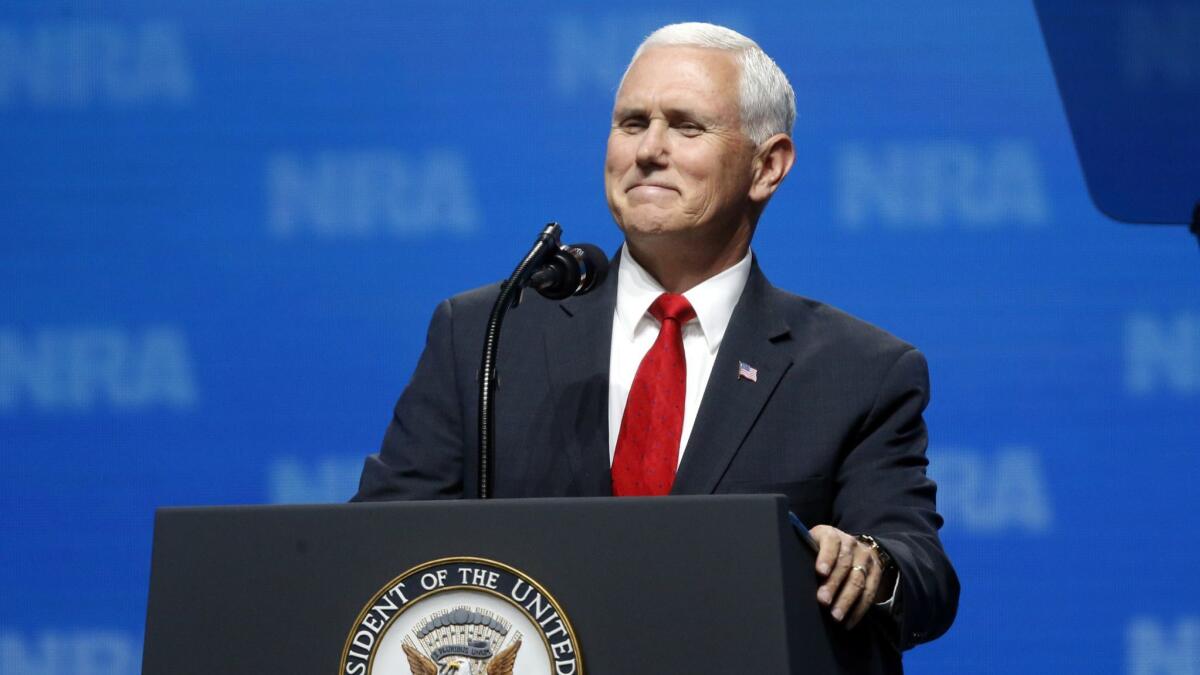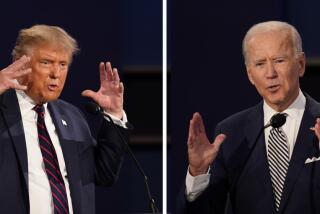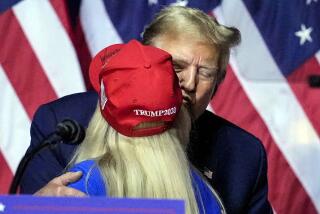Op-Ed: Mike Pence won’t get booted from the GOP 2020 ticket

President Trump — facing a tough start to the second half of his first term and, potentially, a tough run for reelection — has reportedly considered pushing Vice Present Mike Pence off the GOP ticket in 2020. Newsweek’s sources say the president frets that Pence isn’t loyal enough. A plethora of stories has considered specific replacements, with Nikki Haley a particularly popular choice. Pence’s stone-faced performance at an Oval Office meeting with Trump, Nancy Pelosi and Chuck Schumer this week only added to the rumors.
Does Pence have to worry about losing his job? Recent political history would say no.
The best argument for a new VP is simple. Among Trump’s evangelical supporters in particular, Pence is an asset (and an attractive fail-safe in case of impeachment), but because Trump has proved to have such a strong lock on his base, the upside of replacing Pence could compensate for the risks of getting rid of him. By getting a new running mate, Trump might be able to gain votes beyond that base.
The vice presidential switcheroo trial balloons keep coming.
In politics, floating the idea of a VP switch is a familiar trope, especially after midterm elections. In 2010, there was talk of ousting Vice President Joe Biden for Hillary Clinton as President Obama’s running mate in 2012. Similarly, Dick Cheney was under consideration for replacement in 2004 and Dan Quayle in 1992. In the 1960s, nearly all John Kennedy biographers claim he was considering replacing Lyndon Johnson for his second term, and in 1956, Republicans wanted Dwight Eisenhower to drop Richard Nixon and move him to the Cabinet.
None of these switches came to pass, and, in political terms, at least, it worked out.
Despite the increase in importance and power of the vice president over the last half-century, there are very few examples of a vice presidential choice mattering all that much to voters. Some vice presidents have provided an energy boost for a particular ticket — Sarah Palin’s selection in 2008 created a stir in John McCain’s campaign, but it is unclear if she managed to help, hurt or do nothing for McCain’s ultimately unsuccessful campaign. Vice presidential choices have made even less of a difference when a presidential candidate is seeking reelection. Incumbents run on their record, not their choice of running mates. Additionally, changing vice presidents can seem both desperate and disloyal.
And yet, the vice presidential switcheroo trial balloons keep coming. Those who like the idea can at least point to early U.S. history as a model. Thomas Jefferson replaced the disloyal Aaron Burr with New York Gov. George Clinton in his 1804 reelection campaign. With the exception of James Monroe and his VP Daniel Tompkins, no president/vice president duo was elected to two terms in the 19th and first decade of the 20th century. Woodrow Wilson, with Thomas Marshall, broke the streak, but it wasn’t until after 1944 (the year Franklin D. Roosevelt replaced Henry Wallace with Harry Truman) that VPs have habitually retained their positions.
Enter the Fray: First takes on the news of the minute from L.A. Times Opinion »
The timing isn’t random. The middle of the 20th century saw the birth of the primary and caucus system, and the end of the all-powerful party conventions, where the vice presidency slot had served as a bargaining chip to win enough delegates to get the nomination. In the post-World War II era, presidential candidates have essentially personally selected their vice presidents, which only made it more likely they would stick with them.
In fact, the only VP to be replaced since 1944 is an exception to many rules: Nelson Rockefeller. Gerald Ford appointed Rockefeller as vice president when Ford took over the White House after Nixon resigned. In 1976, when it came time for Ford to run, he faced a conservative primary challenge from Ronald Reagan and needed to move to his right. He dumped the liberal Rockefeller in favor of Sen. Bob Dole. The fact that neither Ford nor Rockefeller had been elected might have helped stave off charges of disloyalty. (Jimmy Carter, with Walter Mondale, ultimately won.)
Trump has proved to be willing to jettison staff members almost on a whim, and he has overthrown many other orthodox methods of governing. But like most modern presidents, Trump will probably calculate that the value of replacing a VP is unlikely to be worth the cost.
Joshua Spivak is a senior fellow at the Hugh L. Carey Institute for Government Reform at Wagner College and blogs at “The Recall Elections Blog.”
Follow the Opinion section on Twitter @latimesopinionand Facebook
More to Read
A cure for the common opinion
Get thought-provoking perspectives with our weekly newsletter.
You may occasionally receive promotional content from the Los Angeles Times.






